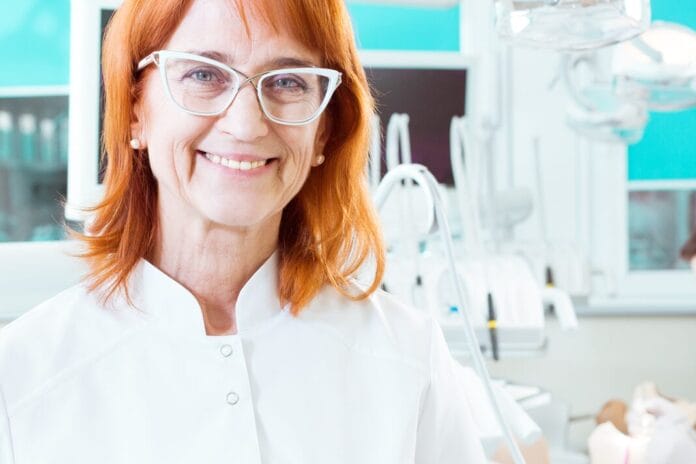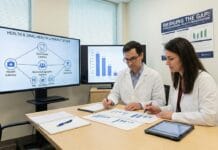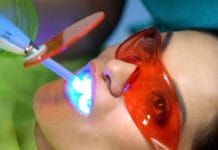Not everyone is meant to be a teacher, and that’s OK. Teaching, especially in the dental world, isn’t just about knowing your material or stacking up credentials. What separates a good educator from a great one isn’t found in a resume. It’s in how you show up for your students.
The Adaptable Educator
Being a dental educator is a lot like being a chameleon. You constantly shift to match the energy in the room. One student thrives on structure and step-by-step instruction. Another learns by doing, fumbling through it a few times before it clicks. Then there’s the student who just needs to know someone believes in them. You figure out what makes each person tick, and you adjust. Every class, every semester, every group is different. If you can’t pivot, you’re going to lose them.
A great educator reads the room. You can tell when a lesson isn’t landing. You can see when someone’s confidence is slipping. You notice the blank stares or the clenched jaws. You learn to slow down, explain something a different way, ask a better question, or maybe just take a breath and remind them that they’ve got this.
Beyond the Textbook: Patience and Empathy in Practice
Teaching takes patience. A lot of it. It takes empathy, not just for what students are learning, but for what they’re carrying outside the classroom. I’ve taught students who were single parents, students new to the country, and students working night shifts to make it through school. I’ve had students who came in ready to quit on day one, convinced they weren’t cut out for dentistry. Those are the moments when being “the expert” doesn’t matter. Being human does.
Time and time again, my students tell me that what they appreciate most is that I’m approachable. I’m real. I don’t pretend to have it all figured out. I share my own path – how I started as a trained-on-the-job dental assistant, then became a hygienist, and eventually moved into teaching. I talk about the times I made mistakes, the moments I felt like an imposter, and how learning never really stops. That vulnerability helps them see that success isn’t about perfection. It’s about growth.
Some of the most meaningful feedback I’ve received hasn’t been about the clinical skills I taught, but about how I made students feel. I’ve had students say things like, “You helped me believe I could do this,” or “You never made me feel dumb for asking.” That matters more than any rubric or checklist.
The Evolving Craft of Teaching
Of course, knowing your material is nonnegotiable. You’ve got to stay sharp. You need to know the science, the procedures, and the standards of care. But if you can’t communicate it in a way that makes sense to your students, it’s not going to stick. I’ve found that the most effective teaching moments come when I let go of the script and just talk to students like the smart, capable adults they are. I use real-life examples, humor when it fits, and sometimes just a simple, “Let’s walk through this together.”
Teaching in dentistry isn’t just about clinical competency. It’s about helping students grow into professionals who can think critically, work as a team, and advocate for their patients. That means we have to model those things in how we teach. We can’t just talk about compassionate care – we have to practice it with our students.
It also means we have to keep growing ourselves. Every semester, I learn something new: a better way to explain a concept, a new tool that helps a student grasp a skill, or a lesson in humility when something doesn’t go as planned. That willingness to evolve is part of what keeps teaching both humbling and rewarding.
In Closing
Being a dental educator is not for everyone. It requires a strange mix of structure and flexibility, thick skin and soft edges. You have to hold students accountable while also being their biggest cheerleader. You have to meet deadlines, grade assignments, handle tough conversations, and still find a way to be present and encouraging when someone finally masters a skill they struggled with for weeks.
But when it works – when you see the lightbulb go off, or watch a student go from doubting themselves to owning their role in clinic – it’s one of the best feelings in the world. You realize you’re not just teaching procedures, you’re helping shape confidence, professionalism, and purpose.
And if you’re lucky, you get to do it all while staying grounded in the thing that brought you to this profession in the first place – the desire to make a difference.
Before you leave, check out the Today’s RDH self-study CE courses. All courses are peer-reviewed and non-sponsored to focus solely on high-quality education. Click here now.










